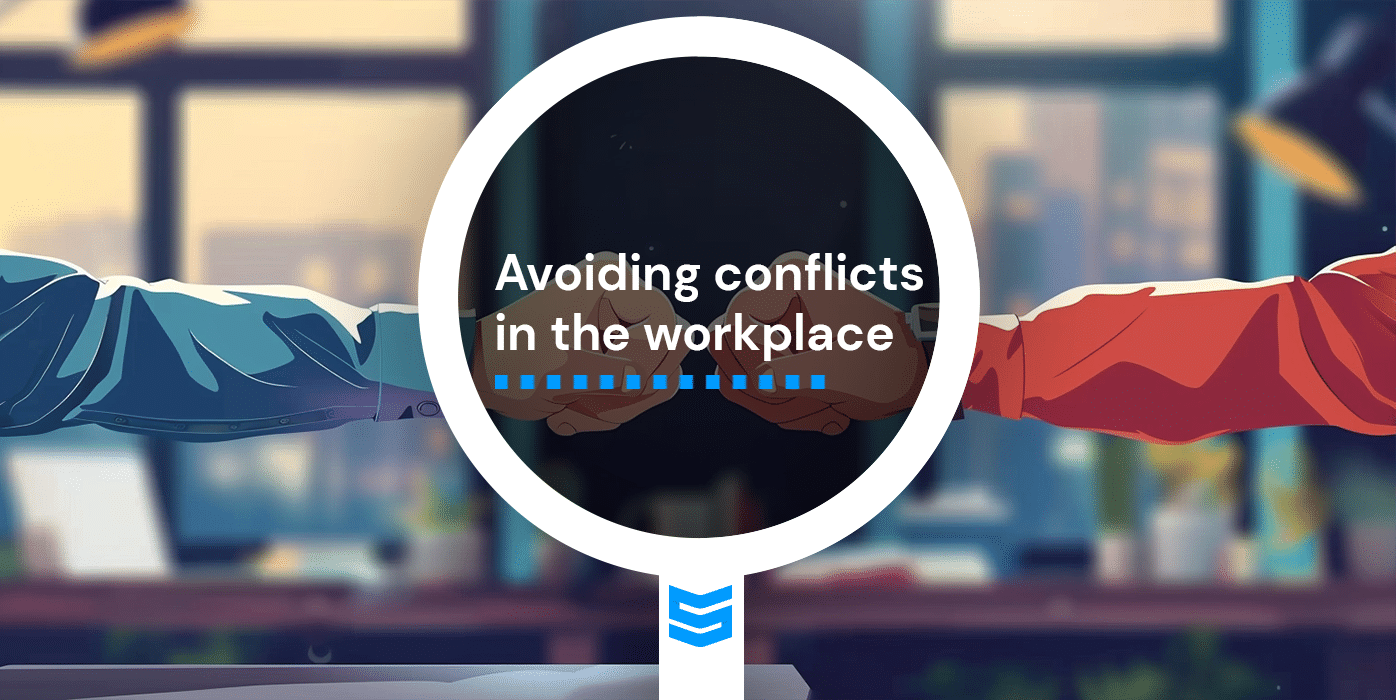Introducing Nathan could take us a full newsletter, but we’ll try our best to highlight the main reasons we thought he’s an amazing entrepreneur and marketer to sit down and have a chat with.
He started his first business when he was 19, he is a best-selling author (check out his book, How To Be A Capitalist Without Any Capital), the host of Deal or Bust (a weekly YouTube show, like Shark Tank for online businesses), and he is currently building Founderpath, a way for SaaS founders to get funding within 3 days without giving away any equity or dealing with slow banks.
Above all, his personality and attitude of “no BS, focus on data” is what we thought makes him a great person to chat to. You’ll see what we mean when you read through this interview… Get ready to take notes!
You started a successful business when you were 19. What’s your advice for young people – or anyone, really – who want to start a business but don’t know where to begin?
Warren Buffet gave you the keys when he says compound interest is [the] ninth wonder of the world. I didn’t, when I was nineteen, realize how powerful that was. But when you are young, momentum is everything because of the nature of compound interest. In other words, every dollar that a nineteen or a fifteen or a sixteen or a twelve year old earns, is worth – like whatever they do the rest of their life – is worth hundreds of hundreds of [times] that initial dollar, depending on what they decide to do.
It might only be worth 10X if they just go and get a full-time job at GE and work there for three decades. It might be worth 10 thousand X if they’re the next Elon Musk. But the trick is, it’s gonna be something well north of a dollar. So earning early is really really critical, which is why these TikTok stars are so stupid – because they’re young now, they make money, and what do they do? They go spend it on a hunk of depreciating metal – a McClaren, or a Bentley, or a Rolls Royce, that earns nothing.
So, the key for every young person is to create momentum, save money, and then let compound interest do its job.
Keep your expenses low, and make more than what you spend, and save the delta.
The term ‘passive income’ has become a buzzword in the marketing and entrepreneurship community. What are some of the biggest misconceptions about passive income?
There’s a lot of people that know if they put how much ‘passive income’ they’re making in a Facebook status update or a tweet that it’s going to get more retweets, even if it’s not really actually passive income they’re making.
So, most people who talk about passive income are lying. You know why? If you have passive income, you’re not spending your time on social. You’re on a beach somewhere relaxing. Because you don’t need people to like and comment on your stuff to get into your funnel.
So, the big myth about passive income is that anyone who’s talking about it without a ton of proof is probably lying to you. Passive income means passive income – not like you’re making 10k a month but you’re working 100 hours a week, or even 40 hours a week, or by the way, even 1 hour a week. Passive income, to me, is something that if you died today, that stream would keep going.
For me, those are things like real estate. I pay a property management company six percent a month, they take care of broken toilets, they literally do everything. I just get a check, every month, for my real estate investments. And so, building true passive income is not easy, it’s much harder to do than you’d expect. But, when you build it, it’s like magic.
Let’s say you’re back at square one – you’ve got $119 in your bank account. What kind of business are you starting now, and why?
I was born in 1989. Which means when I was going into college, it was like 2008-2009 timeframe. So obviously, context is everything. My first business was selling candy bars on the school bus. And then I got a job when I was 16 working at a place called PumpkinVille in Northern Virginia. I managed the slide during October – it was a Halloween-themed like corn maze type of thing. One person went down at a time, and I made like 8 or 9 bucks an hour.
Then, I upped my game. I started refereeing soccer. And the cool thing about refereeing soccer is that if you did about 8 games in one weekend, you’d get a $200 bonus. So I would batch – I’d do a ton of games on Saturday, a ton of games on Sunday, for $40 a game and then a $200 bonus. I was living like a king at $200.
I now batch [my work] today. When I do podcast interviews, I’ll knock out 20 in a day, it lasts for a month, and you level up the more you batch in a day, because you get the rest of the days off that month. So, in terms of like actual startup business-y ideas, if I was a young person today like 18, 19, I would set up accounts on Fiverr, TopTal, and these freelancing sites, and I would list my services for very cheap to get a lot of business to build a lot of reviews.
I would get my Fiverr ranking [to] number 1 in whatever it was that I wanted to do with my life. Whether it was visual, design, coding, copywriting, or whatever. The thing is that once you get that number 1 ranking on these freelancing sites, brands and people will reach out to you directly and try to hire you. I know because that’s how I recruit talent.
Fiverr will hate that I’m saying this because they want you to do everything through their platform, but when I find someone that’s really fucking talented, you want to hire them full time. Every young person today: you can get a job. Go set up a freelancer [account], get good business, and then scale from there.
What’s your best advice for hiring people and outsourcing work?
If you outsource a role, and that person fails, it’s not their fault – it’s yours because you gave them shitty documentation. Almost 100% of the time. What I like to do: Let’s say there’s a task that I have to do every week, and it only takes me 20 minutes. If you multiply that, though, by 50 weeks, and you do the math, that’s like 1k minutes a year. And if you divide that by 60 minutes, you can see how many hours that is – 10, 11, 12, 13, 14 hours.
It’s worth it today to take 3 hours of my time to super-document that one 20-minute process. It might be a 4-page document. And then, go put that in front of freelancers and hire someone for it and forget it. I’ve done this for my podcast editing. It’s been the same guy named Sam for almost 3k episodes. He’s based in the UK, I pay him $3 an episode, we never talk, I just pay his bills, he just does the work, and it just works. The key to outsourcing correctly is you have to invest the time in clearly teaching and documenting the process.
Any books you’d recommend for marketers? Other than yours, of course.
I like books that are timeless. By the way: My book is not timeless. If people don’t buy it in the next couple months, it won’t be worth a lot. Because everyone will be doing the tactics in the book, and then the tactics won’t work because everyone’s doing them. My book is actually not timeless, which is probably why we sold 30k copies so quickly.
But, for books that I read over and over, are things like Writing Riches by Ray Edwards. Like when you guys are trying to write a subject line for Stacked Marketer, you just open a book like that and instantly get subject line ideas. So I like books that I can open, and it will stimulate my brain in a moment for a very functional purpose. And so anything that’s like a list of ideas, or things like that, those are books that I like to recommend.
What does your morning routine look like – and how critical do you think it is for being successful?
I just don’t think people actually have morning routines. I think they have a routine that, when they type it, it sounds sexy, and when they publish it, it gets a lot of engagement on Entrepreneur, but the likelihood that that person actually follows that morning routine every day, 365 days a year, is about zero.
The actual question is: What do you think you should be doing every morning where you think you’re going to have the most productivity? And you’re gonna be like:
- Wake up at 6:30.
- Brush my teeth.
- Ooh, instead of a hot shower, let’s take a *cold shower* ‘cause I read it on Entrepreneur.
There’s going to be a bunch of this baloney. Fine, try it for a morning, and maybe you feel like a little peacock with your feathers spread and you’ll be very productive that day. But guess what: you’re not going to do it every day, because you’re just going to go back to your old habits.
So what I try and do is just listen to my body. Some mornings I wake up and I can just tell I didn’t get a good sleep, so I won’t be able to write that morning. What I do instead is I just go on a run. Some mornings I wake up and I’m just ready to frickin’ go. So I just stay in my pajamas, grab a cup of coffee, and just write for five hours.
I think the key is actually avoiding any set structure or routing in your morning routine. Listen to your body and let your body go to wherever that is, which is why by the way, people with full-time jobs generally stay stuck in a full-time job for a long period of time. Because when you have a full-time job, you can’t listen to your body. You have to do the work, you have to be there at 8, you have to be off Slack at 6 PM, you can’t actually listen to your body. You have to work when you don’t feel like working.
So, the trick is to be super lazy, listen to your body, and then be very productive when your body is saying I’m ready to be productive.
Off-topic: Do you play video games, and if you do, what are you playing?
I am by far, *by far* the number-one rated on two specific apps. There’s Ticket to Ride – I play Ticket to Ride a ton – and my other guilty pleasure is a little bit of Settlers of Catan. I play both of these on my phone, a ton, like I’ve played Ticket to Ride like 1,362 times on my phone because I always play it right at takeoff on planes, and I always play it right when we land because it’s time to kill.
And you know what, I don’t feel guilty about it, you know why? Warren Buffett plays bridge every night. So if he can play bridge, I can play Ticket to Ride.
Any big plans coming up for you, business or life or otherwise?
I’m tripling and quadrupling down on everything media. Because media and community is the only thing that cannot be stolen from you. It can’t be taken, it can’t be stolen, it’s a defensible mode.
Everything else, because there’s so much money in the market and the federal government is printing so much money, it can be bought from you. If someone wants to copy your code, they just go get money from VCs that have to deploy billions of dollars, they just go get cheap money and they hire all your top developers. Nothing is defensible today, except community. And you get community and eyeballs by media.
So I’m doubling down on media. And what I’m using for media – so GetLatka is about to pass SaaStr in terms of the most popular website for SaaS founders. The podcast just passed 11M downloads. We did some very interesting things in those episodes to get downloads, I encourage you to check it out and see if you can figure out the reverse psychology I do in the episodes to get downloads.
We’re doubling down on the email list which is growing nicely, trying to do a lot like what you guys are doing at Stacked Marketer. And then, with all that being said, we’re launching things like Deal or Bust which is Shark Tank but for SaaS, on YouTube. All of that is helping us build Founderpath. That is the site that SaaS founders are taking a lot of money from, and so our intent is to put about $100M towards SaaS owners, even super early stage, by the end of 2021. We’ll break $10M by the end of 2020.
So, it’s growing very quick and that’s where most of my time is focused.






